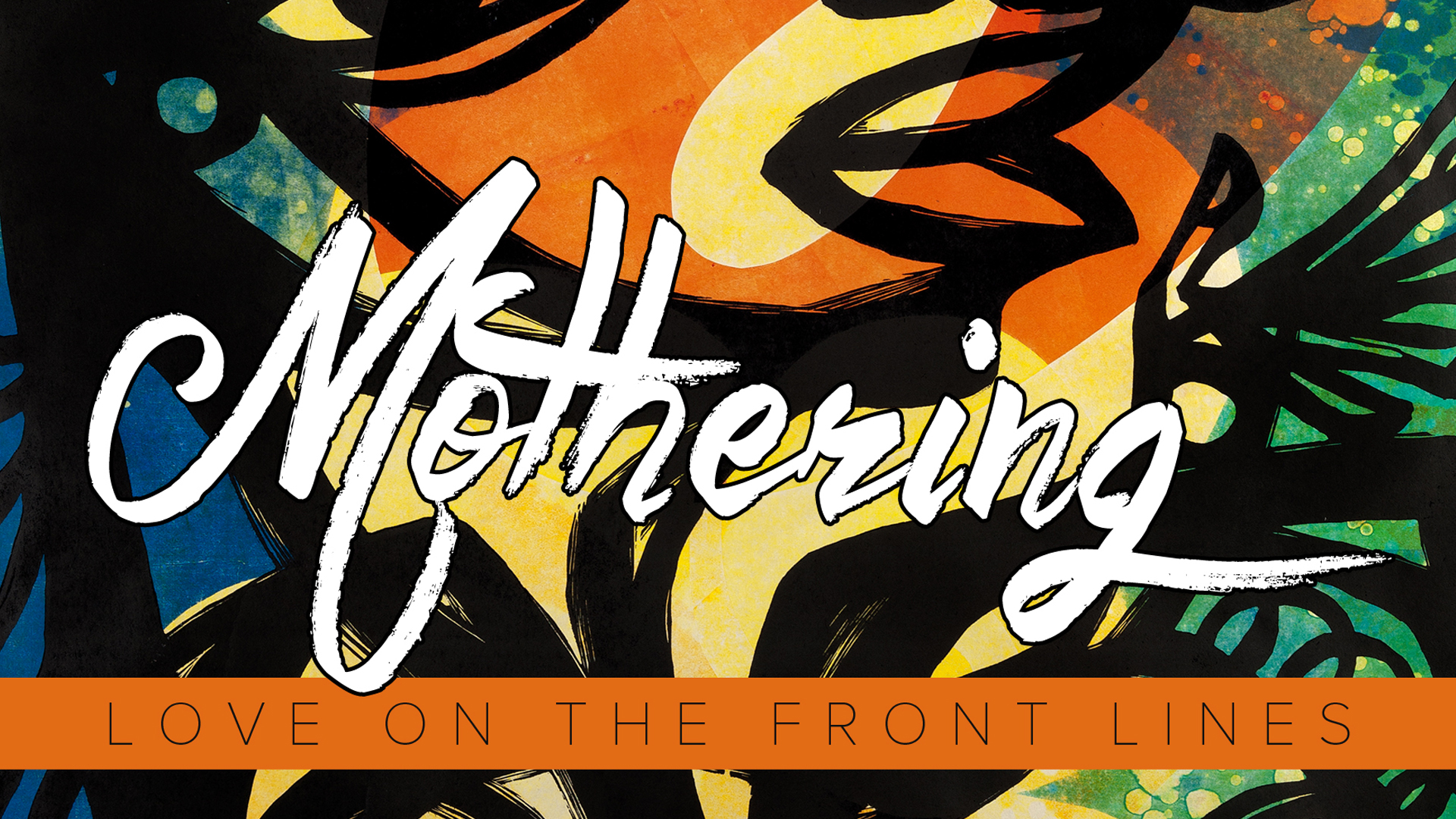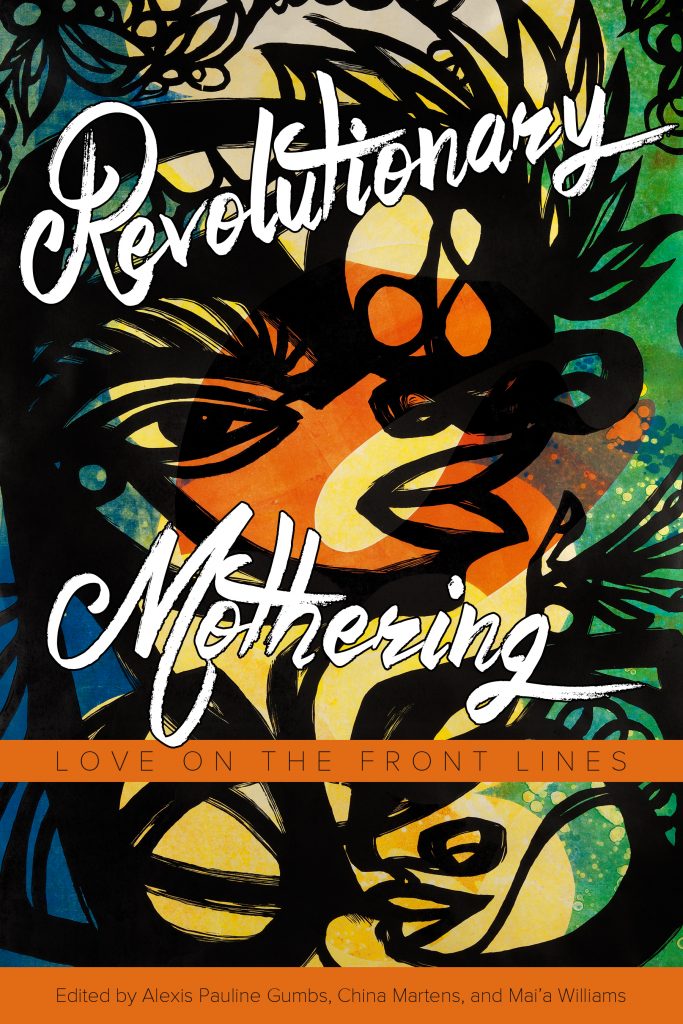by Chiara Galimberti
MRR
November 2018
I devoured this book as I am getting ready to move my kids to college (on opposite coasts). I think hard about the last eighteen years of being a solo mami and a teen parent, and I am ready to be without the daily responsibilities of caring for my twins for the first time since I was seventeen. This book may have been particularly resonant for me, but believe me, it is a necessary read for you, too.
Alexis Pauline Gumbs, China Martens, and Mai’a Williams gift us with a rich anthology that approaches mothering abundantly. This is an expansive book—expansive as generous, expansive as far reaching and ambitious. It uplifts stories of all kinds of mothers: young, adoptive, immigrant, blood and chosen, poor, Black, South Asian, Chinese American, Latina, trans, and more. It includes the voices of mothers of babies, and mothers of adults. It looks at mothering as political act, “the mothering of children in oppressed groups, and especially mothering to end war, to end capitalism, to end homophobia and to end patriarchy as a queer thing…a good thing…a necessary thing, and a crucial and dangerous thing to do.” It also opens up the category of mothering to any caring done to nurture, preserve, and uplift life, not limited to the business of childbearing or childrearing.
While nuanced and multifaceted, Revolutionary Mothering is well held together by having a clear centering and aim. The book spells out its lineage multiple times, in June Jordan’s Black Feminist Futurist envisioning of mothering, in the conversations nurtured through the Allied Media Conference in Detroit, and the US Social Forum, and in the ongoing work of collectives such as Regeneratión and Kids City. Revolutionary Mothering centers mothers at the margin, especially Black Queer Mothers because, “centering the more precarious within society…better supports every one of us to make an improvement which will really make a difference.”
The book employs a wide variety of formats (essay, photos, poems, drawings), which allows a more nuanced capturing of the multifaceted nature of motherhood, of the profound joys and also the tensions and paradoxes of caring for a child. In Revolutionary Mothering you will find intellectual / theoretical approaches to mothering, as in Alexis Pauline Gumbs’s excellent essay “M / other Ourselves “which lays out beautifully the interweaving of queer theory, Black feminist thinking, and argues that mothering is a queer thing. Another gem of sharp intellectual probing is Cynthia Dewi Oka’s “Mothering as Revolutionary Praxis,” which lays out ten steps toward revolutionary homemaking. You will also find pieces that dive into the visceral, disjointed and messy aspects of motherhood. Terri Nilliasca’s essay about the adoption of their child from the Philippines and “you look too young to be a mom,” excerpts from posts on the website GirlMom.com are two of my favorites.
I am hard pressed to find anything about this book that I would change, but I would like to include a note about language. It feels sometimes in contrast to the people who Revolutionary Mothering is aiming to center. I remember as a teen immigrant mom with limited education and English comprehension, trying to read political books and pamphlets and being completely alienated by the lofty language and by how much I was expected to already know in order to understand some zine about anarchy or dismantling capitalism. I don’t think I could have made it through this book. I wish the book contained more essays by mothers with less formal education, by mothers who are service job workers and less from artist / activist / scholar moms.
But do not let that discourage you. As I said before, this is an essential read. In short, the world could use some serious mothering, and, reading this book might just inspire you to do the kind of mothering that makes you to push forward toward a less fucked up world!
Back to Mai’a Williams Author Page | Back to Alexis Pauline Gumbs’s Author Page | Back to China Marten’s Author Page







